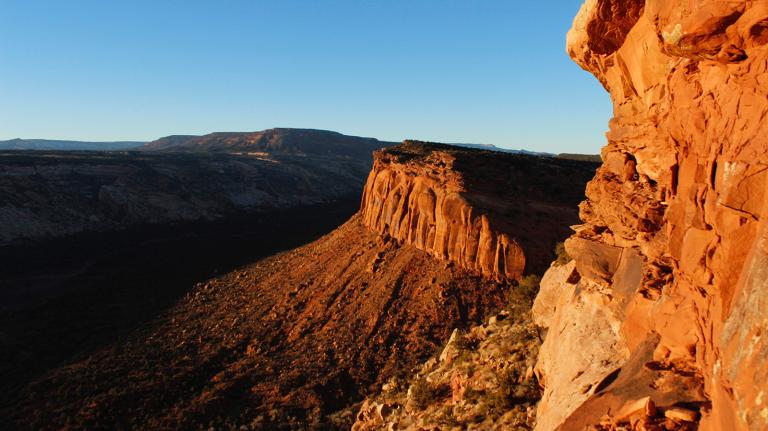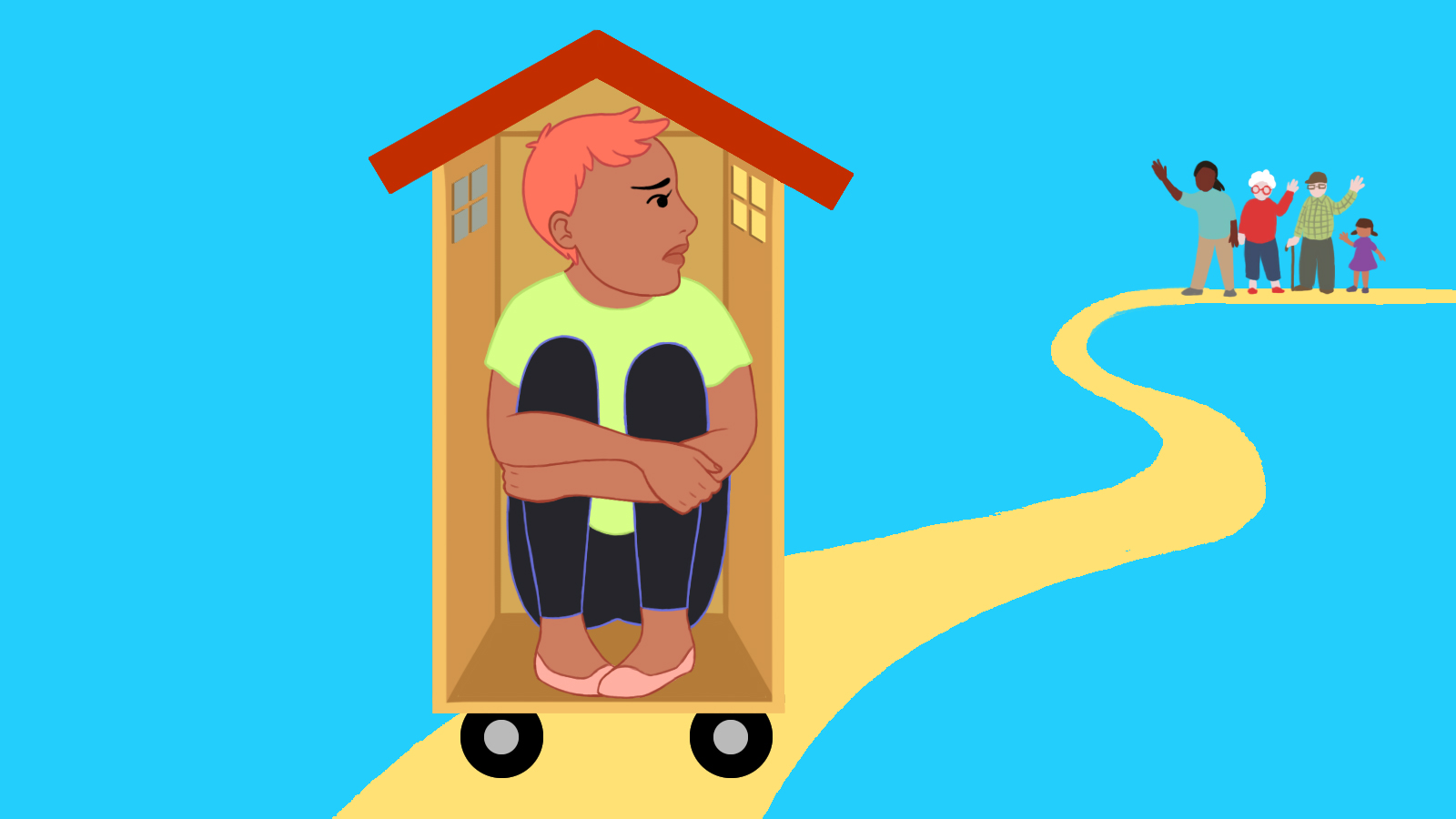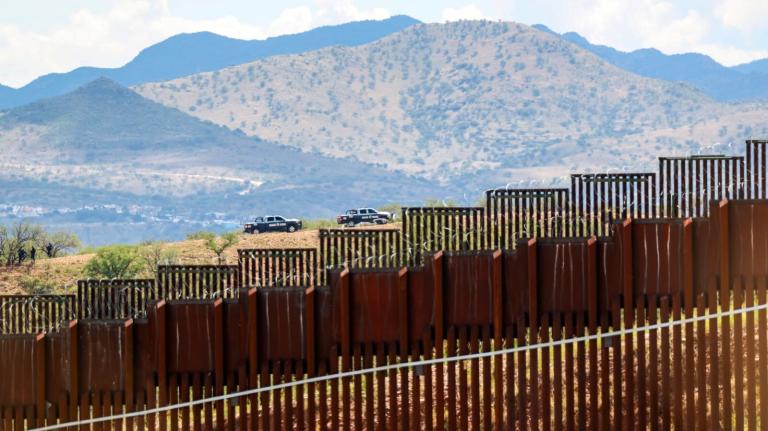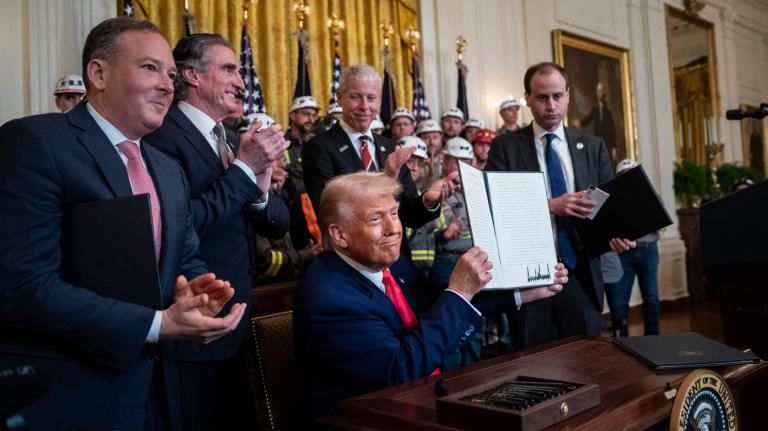I never expected that the most controversial piece of green living advice I could deliver would be: “Meet your neighbors.” After all, you and your neighbors have so much in common! You share a street, a building stairwell, a bodega where you each buy the exact same flavor of taquitos at 2 a.m.
But when I made that suggestion in my recent 21-Day Apathy Detox — designed to coax people back out into the world after a malaise-inducing election — a significant portion of Grist’s readership yelled into their keyboards. Their objections ranged from claims of being too shy to accusations that yours truly is a “Cheeto follower,” and included the colorful declaration that “my neighbor can go pound sand” (which I had to Google).
I included neighbor-cultivating in the inaugural Ask Umbra civic action guide for a very simple reason: Experts told me that it’s impossible to improve your community without being a part of it. But reader disdain for the idea resurrected a haunting suspicion I first felt when reporting on the tiny, off-the-grid house obsession a few years ago: that the pursuit of a sustainable life has become an exercise in looking inward.
Too often, it seems that the question we seek to answer is: What can you do to be more sustainable and responsible in your own life, within the confines of your own home? This preoccupation with individual actions, which really amount to relatively minor life tweaks, is evident in the queries I get from readers.
It’s certainly appealing to focus on yourself in the face of a deeply polarized culture and polluted planet. But what if turning away from the world makes all of its problems so much worse?
That corresponds to a major theme in investigative journalist Mark Sundeen’s new book, The Unsettlers, coincidentally released within days of Trump’s inauguration (“Bad for America, good for my book,” he quips). Sundeen follows three different families as they chose to go back to the land — to varying degrees — in the name of living more sustainably and more meaningfully.
What Sundeen finds is that “off grid” tends more toward aspiration than reality, even for hardcore homesteaders. “After meeting quite a few of them, I realized that most off-grid people were still enjoying the benefits of the global economy, which is to say they were telecommuting or car commuting,” he tells me. “They still have access to wealth, but they had put themselves in a place where they didn’t have to see any pollution or crowding or any racial inequity.”
Sundeen describes this breed of off-gridder as “a suburbanite with a long driveway.” They’ve escaped the trappings of our insane economy, he says, “but they haven’t actually altered their behavior in a way that makes it better.”
Which leads Sundeen to a surprise conclusion that echoes my own research: “If reducing your carbon footprint is your number one goal,” he says, “you should move to a city and participate in it.” The less glamorous but less expensive class of city — your Boises, your Chattanoogas — where the infrastructure is already in place and “you can build community much more easily.”
This isn’t necessarily prescriptive — not everyone needs to up and move to Des Moines. But Sundeen has a point: What does refusing to participate in our problematic, complicated world really accomplish? If you remove yourself as a stakeholder, can you really change the system?

When I first interviewed Christopher Smith and Merete Mueller in 2014, they had just released the documentary TINY, which chronicles their experience building a tiny house together in rural Colorado.
Today, though, Smith and Mueller live in Los Angeles and New York, respectively. To the casual observer, this seems like a precipitous change in lifestyle. Of course I wanted to talk with them about it.
The tiny house, it turns out, had been Smith’s dream, moreso than Mueller’s. “It’s just satisfying to know that you can get by on your own, without being reliant on bigger systems and institutions,” he says. Eventually, though, Smith missed the support and companionship of other people, and in 2013 — about a year after filming TINY — he moved the tiny house into Boulder after his relationship with Mueller ended and she moved to New York.
Then, in 2014, Smith made the transition to Los Angeles to pursue a career in documentary filmmaking. Despite their urban relocation, both are still committed to low-impact lifestyles: They live with roommates, use public transportation, and bike. Smith’s house is solar-powered.
Mueller and Smith point to financial independence as a primary reason for many people to go off-grid. The trappings of the conventional American dream are ever-more unaffordable: mortgages, five kinds of insurance, credit card interest.
However, there is an undeniable privilege to even have the option to pursue an alternative to that. Mueller, Smith, and Sundeen all agree on this point — in Mueller’s words: “It’s a privilege to be able to even think about removing myself from a community — to think ‘I’m tired of all this, I’m going to move back to Colorado and have a garden!’”
“It’s a missed opportunity to keep engaging,” she says, “and to try to understand what people are experiencing and how they’re vulnerable, and what is actually needed.”
Smith maintains that living off-grid and “opting out” of society are not necessarily the same thing. You can still be part of the tiny house, tiny footprint movement and make a valuable contribution to your city or town, he says. “We have the right to participate in government or our communities — or not — as much as we want,” he says.
“I do think it’s always a good idea for people to participate, and the more, the better.”

“This is a really unfashionable conversation, but I do think that we have to start talking about morals again. I feel like the left has become really consumed with this idea of desire: ‘What do you want? ‘What makes you happy?’ Rather than: ‘What is the moral content of my existence?’”
I’m talking with Jessa Crispin, editor-in-chief of the recently closed lit crit periodical Bookslut and author of The Dead Ladies Project, which chronicled her travels around Europe in the couple of years following the 2008 economic crash. More recently, Crispin wrote Why I Am Not a Feminist: A Feminist Manifesto.
I was struck, when reading The Dead Ladies Project, by the following critique:
Our culture has become obsessed with the I and mapping out our internal qualities, all while arguing that individuation is the first step to becoming a good member of a community … And yet we have not from our little armies of unique individual spirits created a whole universe of equality and harmony and friendliness. We have separated out into our own divisible units, into our own one-and-a-half bedroom apartments, and the only things we seem to share are pictures of what we are eating for dinner.
Crispin blames this self-obsession for today’s perilous political situation. “Not that a 17-year-old girl dreaming of being a doctor is to blame for the Trump administration,” she clarifies. But the real culprit is “the idea that you are the most important person on the planet, your happiness is most important.” The consequences of how you achieve that happiness, the injustices that those consequences might bring to others, become secondary.
In Why I Am Not a Feminist, Crispin argues that the titular term has become meaningless, largely because the feminist movement has been coopted as a means of selling things under the guise of empowerment. Buy this lipstick — it’s a feminist choice, because you’re making it for your own satisfaction. Become CEO of a company, regardless of what its policies and products do for women, because if you’re pursuing your dream, it’s a feminist decision.
You could make the same argument about “sustainability.” What on earth does it mean, now? An infinite slew of products, regardless of how they perpetuate a fossil-fueled economy, are sold as “sustainable.” A package of beef can be marketed as “sustainable” based on marginally-better-than-the-norm land management practices. We want to feel good about continuing to consume things, so we tell ourselves that they are sustainable. A 2010 study actually suggested that purchasing ethically labeled products, perversely, contributed to “less altruistic” behavior. If we’re being good consumers, why bother being good people?
The understanding of “how to be more sustainable” is often framed around what and how and how much to buy — we frequently look to consumer habits, for example, to measure how much we care about environmental or social change. That degree of personal responsibility is a necessary condition for meaningful change, but it is not sufficient. There is little conversation, in the realm of “sustainable lifestyle practices,” that addresses things like: How do you cultivate respectful, meaningful relationships with the people who will help you fight fossil fuel infrastructure?
“We’re so used to thinking of ourselves as an individual that we think of what we can contribute as an individual,” Crispin says. “It’s not that much — it’s one person trying to hold back the ocean. You’re not going to get very far.”

As a salve to all the “off the grid” naysaying up to this point, please allow me to introduce Shannon Hayes, a woman who said “screw the world,” moved back to the land, and found herself a crucial pillar of the kind of community that many city dwellers have likely never encountered.
At the turn of the millennium, two things happened for Hayes: She completed a PhD in sustainable agriculture and community development from Cornell, and President George W. Bush took office. When Hayes did the math on her job prospects under the new administration, she quickly realized that the future she had planned for herself was simply not going to work out.
“This whole middle-class dream was a farce,” she says she concluded, “and there was nothing to be gained from it.”
So she and her husband moved back to her family’s farm in upstate New York, where they now grow (and sell) their own food and power their home on solar energy. “We checked out,” she says. But in doing so, her family has built what she calls a “subsistence empire.”
By providing for so many of their own needs, rather than purchasing them, Hayes’ family has been able to make some money even in the notoriously difficult agricultural sector (difficult for anyone other than giant agri-conglomerates, that is). They then reinvest those profits in the community, rather than the stock market. It’s the difference between an extractive economy and a “life-serving” one, Hayes explains. The family owns the town’s old post office and firehouse, which has been turned into a sort of community center.
For someone who describes herself as “checked out,” Hayes seems deeply embedded in her community — even if she disagrees with many of her neighbors.
Given that the Bush election rocked Hayes’ life plans, I asked how she had reacted to Trump’s: “Sobbing, confusion, despair. And the hard part is that in my community, our family was in the minority. We were outvoted 3-to-1 by our own neighbors.”
But that’s just the reality of having left-leaning values and living in a rural community, she explains. You are going to be surrounded by people who do not share the same political beliefs.
Regardless, she has never felt more engaged than after the Trump election — even when, while attending her local Women’s March on Jan. 21 with her young daughters, the participants got “coal-rolled” by Trump supporters.
Political differences have not historically interfered with the functioning of her community, Hayes says. Community, after all, is built on relationships, not beliefs. “I don’t feel like that’s something that you throw away and walk out of because of what somebody checked on the ballot. I don’t think you bring about change that way — I think you bring it by being kind, compassionate, building a community where people care about each other.”
That’s one thing Trump hasn’t changed. “As the absurdities come forward, our community maintains its integrity,” she says. “There’s too much here, too much that we’ve built.”
It is the people around her — to whom she is committed to as humans, not political counterparts — that have kept Hayes from giving up hope.

There is no shame in dreaming of retreat, of living a more simple, manageable, sustainable life more free of anxiety and conflict. It is human nature to seek both comfort and control, to construct a shelter in which to protect the things that sustain and nourish you. It is human nature, goes the common argument, to put oneself first.
But people are social creatures. There is comfort, also, in knowing that you are not alone. That there are other humans, by and large, who will sustain and nourish you in ways big and small — when you need them, and when you do not.
If you dream of an ever-tinier life, with fewer distractions and disagreements, also think of how you can — very simply — continue to be there for others. If you build something all by yourself, the structure will likely be very small. It will be beautiful, and it can bring you joy. But it will have no room for anyone else, and it will make no mark on the world.




